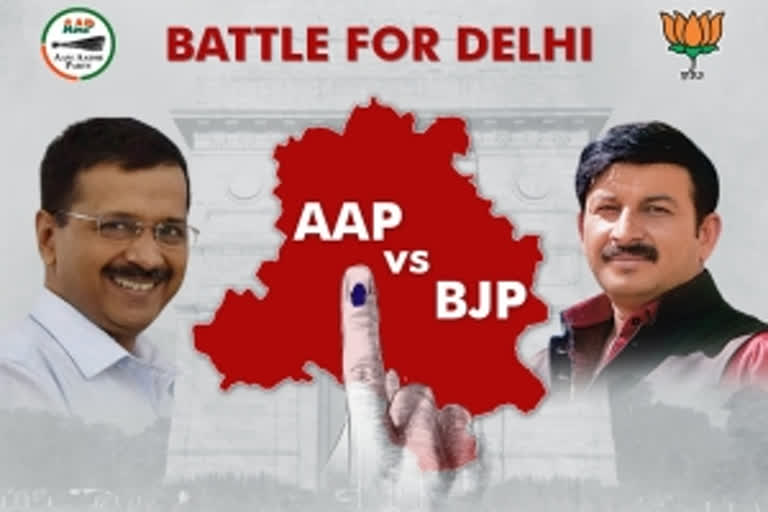New Delhi: Delhi may not be a full-fledged state, but its political importance nationally is no less than the major states of the country. One big reason for this is that the voting patterns of the people of Delhi have been different when it comes to the state's election as compared to the national elections.
This time a party that had been a debutant in the election circles is seeking a second term by fighting it out with the BJP, which is seeing this election as a prestige battle.
This makes the elections for the 70-member Delhi Assembly acquire phenomenal importance.
For many decades, Delhi used to be a two-horse race between the Congress and Bharatiya Janata Party (BJP). But this has changed since 2013 with the advent of Aam Aadmi Party (AAP).
During the last election in 2015, Arvind Kejriwal-led Aam Aadmi Party formed the government with a thumping majority as they won 67 seats of the total 70 seats; BJP won the remaining three seats, and the Congress was reduced to zero.
The political narrative of the Delhi assembly polls 2020 is most likely to be different from the 2015 edition.
The polls, particularly after those in Haryana, Maharashtra and Jharkhand last year, have gained substantial importance because many believe that it could be a referendum on either the AAP's development-model or the BJP's Citizenship Amendment Act (CAA) and National Register of Citizens (NRC) rhetoric.
DEVELOPMENT VERSUS CAA-NRC POLITICS?
From the maverick, hot-headed newbie politician who won the Delhi elections in 2013 and 2015 on the back of a successful anti-corruption agitation, Kejriwal has transformed himself into a mature chief minister with his finger firmly on the pulse of the people.
AAP believes that it has a firm grip over its core support base, comprising the capital’s lower middle class and migrants and residents of unauthorised colonies – on the basis of its initiatives in lowering electricity and water bills, improving education and healthcare and a number of freebies given to people across the capital.
BJP meanwhile feels that it has an edge with the narrative on Shaheen Bagh and that there needs to be a change in Delhi.
SOME OF THE DEVELOPMENTS DONE BY AAP
- EDUCATION Education
In its 2018-2019 Budget, the AAP government allocated Rs 13,997 crore, which is 26% of the total budget, for the education sector.
30 new schools have come up along with 8,000 new classrooms in existing schools.
